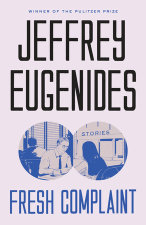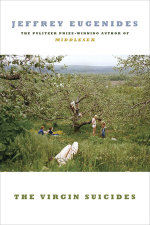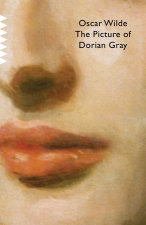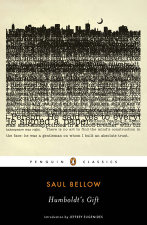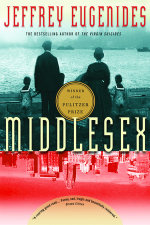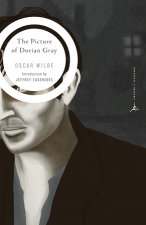
Middlesex by Jeffrey Eugenides
Paperback
1. What was your overall impression of Middlesex? It is such a diverse and huge read: did you connect more with some parts of the novel than others? Why? If you were to sum up this novel to a friend, what kind of book would you say it is?
2. “Every novelist needs a hermaphroditic imagination,” Jeffrey Eugenides has said. “We have to get into the heads of characters of both sexes, after all. So hermaphroditism is part of the job.” How well does Middlesex relate a girl’s experience and the voice of the man she grows up to be?
3. Why is Callie’s brother referred to, throughout the novel, as “Chapter Eleven”?
4. Towards the end of the novel, Cal says “There have been hermaphrodites like me since the world began. But as I came out from my holding pen it was possible that no generation other than my brother’s was as well disposed to accept me.” Do you agree? What does Middlesex have to tell us about the cultural and sexual revolutions of the 1960s and 70s?
5. Orlando by Virginia Woolf, Self by Yann Martel, not to mention the figure of Tiresias in Greek myth: what’s so attractive about women who become men (and vice versa) as a literary subject?
6. Middlesex is narrated by Cal, the grown-up version of Callie. As well as describing things that took place long before his birth, he talks of his own present-day experiences in Berlin. Why do you think the novel is narrated in this dual way, switching between the past and the present? Is it effective?
7. Who was your favourite minor character in the book, and who was the least appealing? Jimmy Zizmo? Dr Luce? The Obscure Object? Jerome?
8. Are Callie’s experiences, in an extreme way, the difficulties of every adolescence -- the confusions of growing up, discovering one’s body, one’s sexuality and identity? Did anything in Callie’s teenage years remind you of your own?
9. Which did you enjoy more: the story of the Stephanides family before Callie’s birth (the 1920s to the 1950s), or after (the 1960s and 1970s)? Why?
10. What’s the significance of place in Middlesex? How do the embattled and divided locations -- Smyrna, Detroit, Berlin -- affect events and inform the characters’ experiences?
11. Who do you think would get more out of Middlesex: male readers or female readers? Why?
12. What does Middlesex make you think about the idea of normality -- norms of gender identity, sexual identity, class or race. You might think not only of Cal/Callie, but also Sourmelina, the family’s experience as immigrants, the riots in Detroit, etc. Does Middlesex suggest that it’s better to fit in or make one’s own path?
13. What’s the importance of fate -- thought of as mythological, romantic, or genetic -- to Middlesex? What about luck, chance and coincidence?
14. Why does Callie choose to be Cal? Do you think it’s the right thing to do? More generally, what is the significance of personal choice in issues as fundamental as gender and sexuality?
15. Middlesex was exhaustively researched. What do you know about historical hermaphrodites, transvestites, eunuchs, and other challenges to the “traditional” classification of genders? What effect do such people have on what we think men and women are? How are such individuals treated today?
16. Finally, some questions about what’s not in the book: How do you think Cal’s family dealt with him over the few years after his return as a man? What was Cal’s life like in the 1980s and 1990s? What do you think happens next, once the novel is over: can Cal and Julie Kikuchi find happiness together?
JEFFREY EUGENIDES is the son of an American-born father whose Greek parents emigrated from Asia Minor and an American mother of Anglo-Irish descent. The Virgin Suicides was first published in 1993 to rapturous acclaim and it has been translated into fifteen languages and made into a feature film. Middlesex, his second novel, won the Pulitzer Prize and was a finalist for the National Book Critics Circle Award. Jeffrey Eugenides's fiction has appeared in The New Yorker, The Paris Review, The Yale Review, Best American Short Stories, The Gettysburg Review and Granta. Eugenides lives in Princeton, New Jersey.
